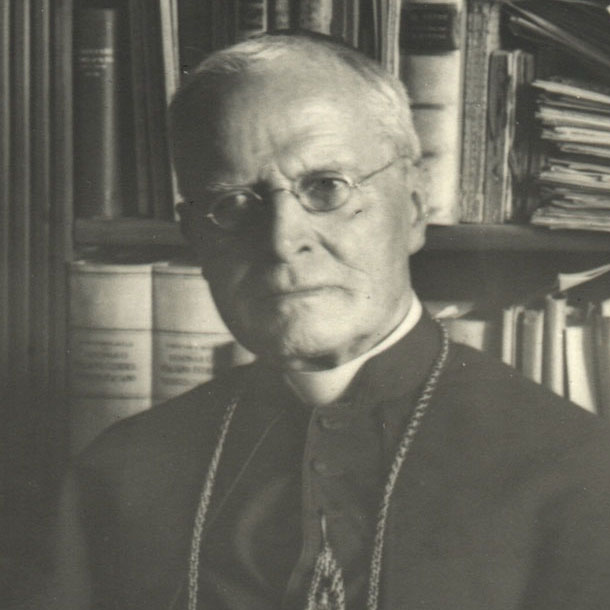Ehrle was born in 1845 at Isny in Germany and he was still an adolescent when he became a Jesuit novice in Gorheim, where he studied humanities and rhetoric. He studied philosophy in the Abbey of Maria Laach in the Rhineland, where he had his first experience of working in a library. For a short period he taught philosophy and literature in Feldkirch. During the chancellorship of Bismarck, following one of the imperial laws inspired by the Kulturkampf, the Jesuits were expelled from German territory, and, consequently, Ehrle found shelter at Ditton Hall, near Liverpool, where the Jesuits had founded a school of theology. When Pope Leo XIII opened access to the Vatican archives, he moved to Rome with the intention of working on the relations with the papal nuncios in Germany, but the project was never completed. In 1881 he became one of the writers for the Vatican Library, of which he was made first director in 1895 and then prefect in 1911. The history of the library was also a subject of study and resulted in a volume (the first and only one) of the Historia Bibliothecae Romanorum Pontificum, the culmination of a series of studies published in the “Archiv für Literatur und Kirchengeschichte des Mittelalters”, of which he was one of the co-founders.
After the years of the First World War, which he spent abroad, he taught at the Pontifical Gregorian University, and in 1922 he was made a cardinal by Pope Pius XI. This pope was, in fact, the former Monsignor Achille Ratti who had been his vice-prefect in the Vatican Library. In 1929 he awarded Ehrle the title of Librarian and Archivist of the Holy Roman Church. Ehrle was mainly concerned with manuscripts, studying their history and dealing with their cataloguing and restoration. He organised an international conference in Sankt Gallen in Switzerland on problems related to their conservation. The interests of Monsignor Ehrle also extended to the library stock, which, beyond his activities of scholar of bibliography and librarianship, he felt the need to enhance through the acquisition of important libraries, such as those of the Borghese and the Barberini families.
Under his guidance the Vatican Library became an important centre for study, used by the greatest researchers. Well known for his kindness and for his willingness to facilitate consultation of the material that were housed there, Monsignor Ehrle was among the first to accept that the photographs of the manuscripts should be made available for scholars. Antonio Favaro and Isidoro Del Lungo also turned to him several times regarding the difficult problem relating to the consultation of documents in the Vatican Secret Archive concerning Galileo and his trial, but the road was not smooth: given the particularly thorny nature of the subject, even the willing mediation work of the German Jesuit did not always provide the results that were hoped for. Franz Ehrle died in the Vatican in 1934.


